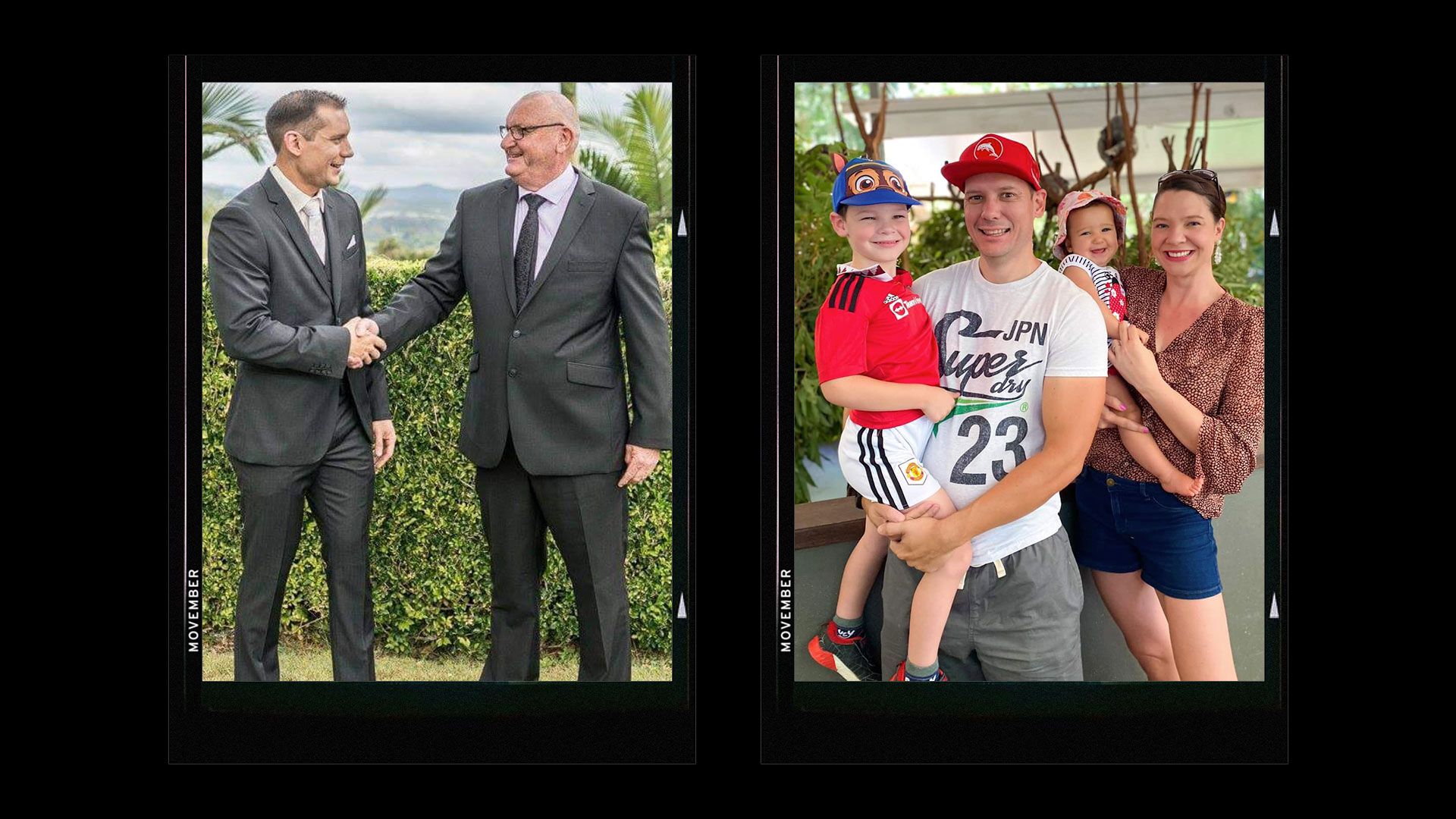

My two kids and wife are the center of my world. Spending time with family is a huge priority – we’re always finding ways to keep active and have fun together. I just really enjoying being a dad.
Outside of that, my hobby is body building. I love the training side of it. The commitment and discipline. I do it all naturally and that keeps me in good shape. I’d been working towards a competition at the end of September 2023 until I was diagnosed with prostate cancer. Talk about a spanner in the works.
Finding out I had cancer
My prostate cancer diagnosis felt lightning quick. First blood test was at the end of January. My PSA level was at 10 which signaled my risk to my doctor. I had another blood test in February, and one at the end of March. Within those two months, it had jumped from 10 to 12.
Those tests were the first step. Then I got the referral to go through to see a urologist. After some more testing, it was determined that I needed to have a biopsy done. And that’s where it confirmed everything for me.
The impact of knowing my family history
At age 38, you don’t really expect to think about prostate cancer. But in a funny way, I was prepared for it.
My grandfather had testicular cancer. My dad was diagnosed with prostate cancer at 54 – also quite young. He has three brothers. One of them, my uncle, was diagnosed with prostate cancer at 60. The other two uncles are being closely monitored.
" Knowing my family history and finding a GP who I could speak to about monitoring my PSA levels meant I caught the cancer before it spread. "
It's just hit the men in our family completely. We’ve all either faced diagnoses and surgery or having to think about that possibility.
I’m grateful that, as a family, we're pretty open and we're talking about it often.
Tackling the stigma of men talking about their health
They aren’t always easy conversations to have. It goes back to the stereotype of men needing to be strong. You can feel like you need to put others ahead of yourself at all costs – create that perception that everything's okay.
But I think that the tide is changing. I know from experience that there are guys that are willing to talk more and come forward about their health and mental health. And that’s important. People are dying too young from things that, in a lot of cases, can be preventable if you catch them early.
I’m glad that with my family, we've always been able to have open conversations – and those of us who have been going through prostate cancer have been able to support and reassure one another.
Moving through treatment and recovery
My Gleason score – a grading system used for prostate cancer – was 3 plus 4. And the PET scan didn’t pick up signs of the cancer spreading. All to say the cancer was contained to the prostate which is a positive start. Of course that’s no lifetime guarantee, but it certainly helped focus the treatment.
Everything moved pretty quick after the tests. Within a matter of weeks, I was in surgery. Not a lot of time to think. We just knew that it was serious and that we needed to act.
It's funny, it probably feels more real now, after the surgery and in recovery. Immediately after the surgery, I struggled not having the mobility and energy to be the active dad I want to be for my kids. And I’ve been dealing with some side effects relating to continence and sex life. These are things that I need to challenge myself to keep being open about and talking about – and I’m glad I’ve got a wife who has been understanding and supportive every step of the way.
What I’d say to guys in a similar boat
My message is pretty simple: Talk to people and get checked.
If you don't know your family history, try to have that conversation. Be as open as you can. Or do whatever test you need to do just to find out. If you’re worried about anything, book a chat with your GP and make a plan with them.
Knowing my family history and finding a GP who I could speak to about monitoring my PSA levels meant I caught the cancer before it spread. And doing that gave me solid treatment options. Fast forward six months and I’m back in action as a dad and a husband, and returning to training for bodybuilding.